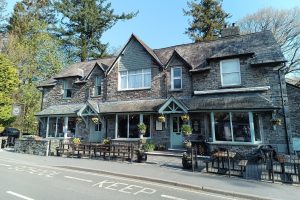Lancs residents support fracking, says Cuadrilla

SHALE gas firm Cuadrilla Resources claims there is widespread support for the controversial fracking process in Lancashire.
The Staffordshire-based firm has conducted a telephone survey with a random selection of 500 residents in Fylde, Blackpool and West Lancashire council areas and said 57% back shale gas exploration.
The fracking process required to extract shale gas involves pumping large amounts of water, mixed with chemicals, underground at high pressure and has many opponents.
Environmentalists claim it can pollute the water table and last year the government imposed a temporary ban on fracking after a minor earthquake in Blackpool was linked to Cuadrilla’s operations at Preese Hall, near Weeton. This was lifted in December and Chancellor George Osborne is now promising tax incentives to support the industry.
Lancashire is the company’s main exploration area, although it was forced to halt oil exploration work in Sussex in the summer because protestors feared it would frack the site. Cuadrilla said 47% of those polled supported its work because of the jobs it could create, and 30% saw the risk of water pollution as the biggest disadvantage, while 20% were worried about earth tremors.
Cuadrilla plans to drill six temporary exploration sites in the Fylde where it will hydraulically fracture, or frack, and test the gas flow. The locations are yet to be announced.
It also plans three more vertical exploration wells and will ask for permission to frack at Grange Hill, near Singleton, where it has already conducted tests. Cuadrilla also has existing exploration sites at Becconsall, near Banks and Preese Hall where it carried out fracking in 2011.
Francis Egan, chief executive of Cuadrilla said: “This research by BritainThinks shows that for many people in Lancashire the potential benefits of shale gas exploration become crystal clear, when they consider the facts and the related job creation and economic opportunities.
“It’s good to see a steady improvement in support, but it’s clear that we need to focus more on the issues that matter most so we can really get to the heart of both what excited and worries people about our proposals as we work to unlock Lancashire’s energy potential.
“One issue that concerns people and is reflected in the findings of this research is around water – an area that we will manage through the highest standards of regulation, well design, and industry best practice. There has not been a single proven case of fracturing fluid causing contamination of aquifers and scientists are clear that shale gas can be extracted safely in the UK without any danger to the water supply.”








